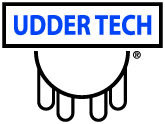Sometimes I’m tempted by the smell of grease that McDonald’s blows outside its walls. It triggers something inside me as we pass by. It’ll be quick, cheap and familiar, I think. Or, it’s the millions they spent on advertising coming to roost. Regardless, my wife shakes her head.
“It’s bad for you, and it’s bad for the world,” she says, again.
From the outside it might look like my wife is a good person. However, it should be noted that it’s easier for her. She comes from southern Italy, a place with a proud food tradition where McDonald’s has not found much footing. Many local establishments in her region offer handmade food that is cheaper than McDonald’s. Other than a few teenagers, people there find no temptation in the big M.
It wouldn’t surprise anyone that Italy isn’t the only European country that takes its cuisine seriously. France, too, can be quite protective of its food. In fact, when its cheese was under attack due to global politics, one farmer responded.
By dismantling a McDonald’s.
José Bové wasn’t born into agriculture but instead came to it by way of activism. Bové refused conscription into the French army during the Vietnam War as a conscientious objector. The government was going to send him anyway. While waiting for his court appeal, he hid out on a farm, where he gained his first agricultural experience. Several years later, in 1976, he joined a movement in southern France protesting a military camp on the Larzac plateau. The new base would have forced 103 sheep farmers to relocate. Over 100,000 demonstrators occupied the area in support of the farmers, and they even built new barns on the site. Eventually the French government conceded and allowed the area to remain in agriculture. Bové stayed in Larzac, becoming a sheep farmer himself, producing Roquefort cheese.
José Bové continued his work as both as a farmer and an activist. In 1987, he formed the agricultural union Confédération Paysanne (Peasant’s Confederation), which promoted small-scale organic farming. A few years later, Bové was arrested for destroying a silo of genetically modified corn in protest of industrial agriculture and the use of GMOs. By then, he started to learn how to foster public favor. Over 40,000 people showed up at the courthouse to support him, where he received eight months in prison. The moment that made him a national hero in France, however, came in 1999.
A handful of European countries, including France, did not want to allow hormone-raised beef from the U.S. to enter their borders. The European Union (EU), in fact, imposed restrictions on importing such meat. However, the World Trade Organization (WTO) ruled in favor of the U.S., stating that the EU must consent to receiving it. When the EU refused to lift the restrictions, the U.S. retaliated by placing punitive tariffs on importing certain European goods, including Roquefort cheese. Not only did Bové take umbrage to France being forced to accept food that he did not view as healthy, but also that his way of life was used as a pawn to satisfy the interests of multinational companies.
Bové associated America’s strong-arm tactics with the expansion of McDonald’s into France, terming it “Coca-colonization.” As a leader of his local Roquefort cheese producers’ group, he felt compelled to stand up for the small farmer in the face of globalized corporate bullying. He stated that the construction of a McDonald’s in nearby Millau was an affront to the survival of the small town and France’s culture as a whole. His views attracted many people, especially farmers and those in rural France. He declared that the McDonald’s wouldn’t open, even if he had to tear it down. Then he made good on his promise by leading a group of five men to dismantle the building. Onlookers in the crowd were given Roquefort cheese sandwiches.
Although arrested once again, it gave Bové an even larger platform to deliver his message, which was that no country should be forced to accept imports at the expense of their local farmers. He clarified that his grievance was not against the U.S. as a nation (where he spent much of his childhood), but with agricultural goods being used as economic and geopolitical weapons. In fact, while awaiting trial, he spoke at a WTO protest in Seattle, holding up a piece of Roquefort cheese that he smuggled in. When he did go to trial, he arrived in a tractor with a giant wheel of cheese hanging from its bucket.
Since then, José Bové has spent the rest of his life protesting global capitalism and industrialized agriculture, often landing himself in jail for short stints. Meanwhile, however, he became a cult hero in France and many places abroad. Although his presidential campaign failed in 2007, he was later elected to the European Parliament twice before declining to run for a third term. At the age of 70, he still has his hand in various causes, many of them supporting small farmers.
Admittedly, I don’t always pass by a McDonald’s. Every once in a great while, if I’m alone, I’ll stop in for a milkshake or a cheeseburger that’s already wrapped up and waiting. No one would confuse me for the people’s hero. Still, I do it much less, knowing that if other farmers were willing to rip the roof off one, I can at least spend my money more locally.
That, and my wife won’t let me eat there.







